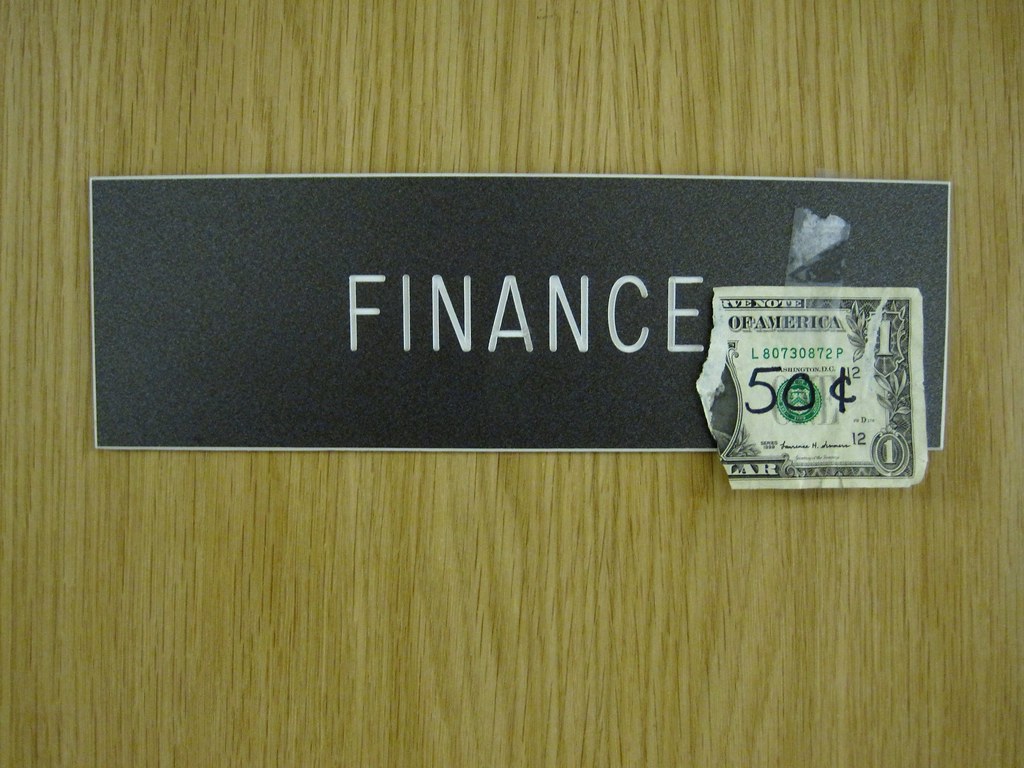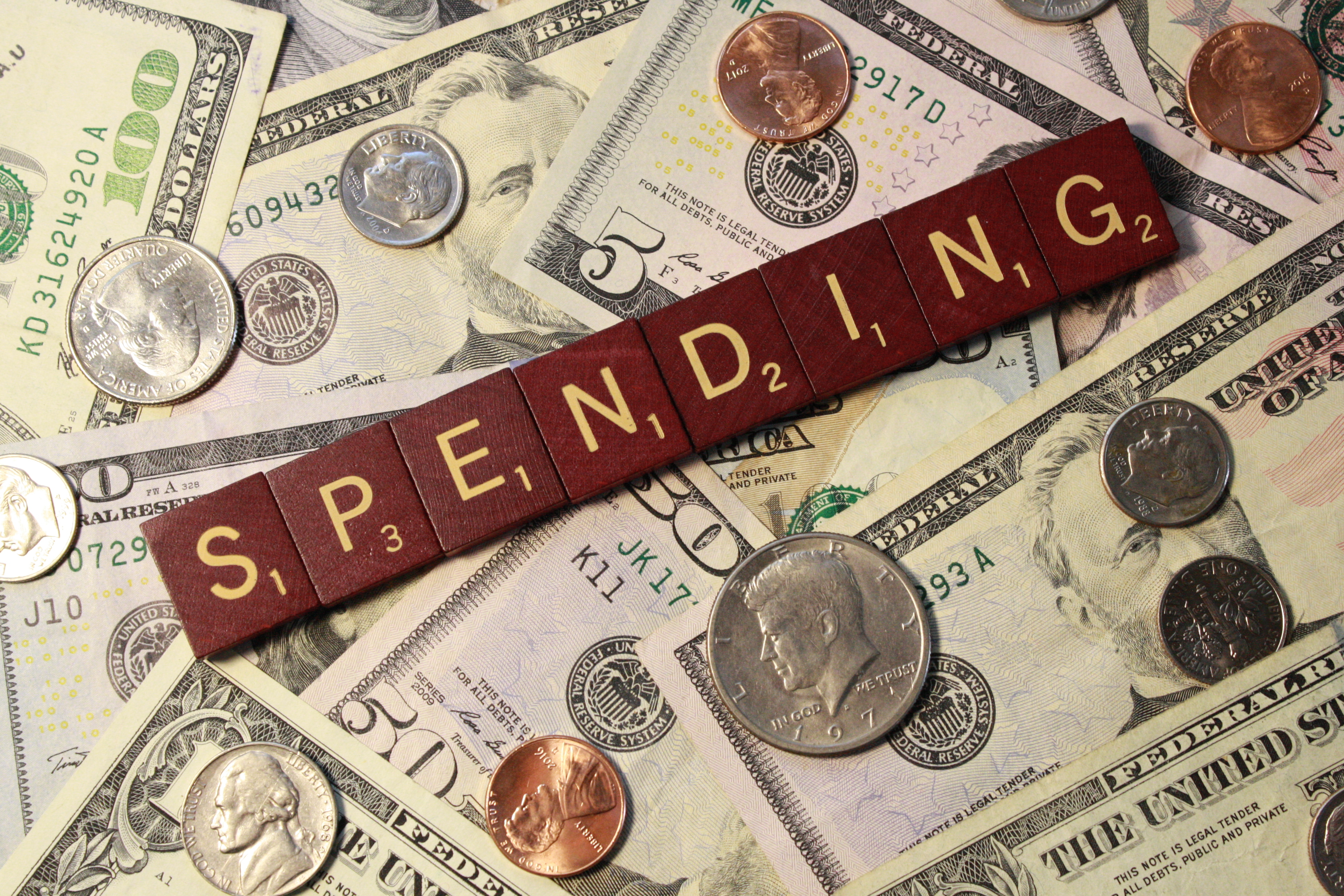
October is Domestic Violence Awareness Month. It’s a crucial time to shed light on all forms of abuse, including those that often remain hidden beneath the surface of a relationship. While physical harm is widely recognized as domestic violence, many people are unaware that abuse can manifest in equally devastating ways, particularly through financial control. This silent struggle, known as financial abuse, strips victims of their economic independence, leaving them vulnerable and often trapped.
Financial abuse, at its core, is a tactic employed by abusers to gain and maintain control over their victim by manipulating their financial resources. It can involve anything from restricting access to bank accounts and assets to outright forcing someone to quit their job. The consequences are profound and long-lasting, often preventing victims from escaping abusive situations because they simply lack the financial means to do so. Expert research highlights its shocking prevalence, with a 2011 Center for Financial Security study revealing that 99% of women who suffered domestic violence also reported experiencing economic abuse, defined as a partner taking control over a significant other’s ability to acquire, use and maintain economic resources.
Despite its widespread impact, financial abuse remains rarely discussed, and its subtle nature can make it incredibly difficult to identify, both for victims and those around them. Kim Scouller, a financial services professional who leads women empowerment and domestic violence awareness programs, emphasizes this challenge: “When we look at a list of red flags, they seem really obvious to us. But for a lot of women, it’s very incremental how an abuser goes from someone you feel is taking care of you and is doing all of these things because they love you, to someone who’s taken complete control over your finances and your life.” This article aims to empower you with the knowledge to recognize these insidious signs, helping you or someone you know to identify the red flags and begin the journey toward safety and recovery.

1. **Controlling Your Access to Funds and Accounts**This is one of the most immediate and profound indicators of financial abuse: when your partner begins to exert complete dominion over your money. Healthy relationships are built on trust and equality, especially when it comes to shared resources. While some couples naturally designate one person to manage finances due to their aptitude or preference, this arrangement becomes abusive when one partner seizes absolute authority, refusing the other access to their own money or shared funds.
This tactic deliberately strips away your economic self-sufficiency, leaving you without the means to meet basic needs or make independent choices. Julie Williamson, LPC, NCC, RPT, a therapist at Abundant Life Counseling St. Louis, LLC, clearly defines this boundary, stating, “If your partner is refusing to allow you access to credit cards or bank accounts, it’s financial abuse.” This isn’t merely about budgeting; it’s about a fundamental imbalance of power where one partner views the other not as an equal, but as someone to be controlled and managed financially.
The National Coalition Against Domestic Violence, in a 2017 guide, further explains that this control over credit cards and accounts can be a deliberate strategy to create “coerced debt.” By monopolizing financial instruments, an abuser can ruin a victim’s credit history, accumulate significant debt in their name, and severely hinder their ability to achieve future financial milestones like buying a car or renting an apartment. This dependency is not accidental; it’s a calculated maneuver to ensure you cannot leave the relationship, making your escape exponentially more difficult.
Alex Melkumian, Psy.D., LMFT, founder of the Financial Psychology Center, notes that a partner might withhold financial information because they feel ashamed of their own financial choices, or, more sinisterly, to “maintain control of your financial resources and destroy your ability to escape the relationship.” Such a deliberate act of concealment and restriction is a stark red flag, signaling a move towards complete financial subjugation.
Read more about: Navigating the Complexities: Preventing “Worst-Case” Scenarios in Commercial Truck Weight Regulations Across U.S. States

2. **Sabotaging Your Employment and Career**Another devastating form of financial abuse involves an abuser actively undermining your ability to earn an income or progress in your career. Economic independence is a cornerstone of personal autonomy, and abusers recognize that by severing this link, they increase their control over your life. This sabotage can take many forms, from subtle discouragement to overt interference designed to jeopardize your employment.
Tactics might include constant harassment at your workplace, creating an environment where you feel unable to perform effectively. Abusers may also escalate physical or emotional abuse right before important meetings or interviews, ensuring you arrive unprepared, distracted, or even unable to show up at all. This deliberate disruption makes it nearly impossible for victims to maintain their jobs or pursue new opportunities, pushing them towards unemployment and complete financial reliance on the abuser.
The profound societal impact of such abuse is underscored by a 2003 report from the Centers for Disease Control and Prevention (CDC), which estimates that “women in the U.S. lose nearly 8 million days of paid work each year because of violence they suffer from current or former partners.” This staggering figure reveals the pervasive nature of employment sabotage and its direct link to the broader issue of domestic violence. Such actions are not just about control; they are about dismantling a victim’s future and sense of self-worth.
Ashley Bendiksen, an abuse prevention educator, notes that a partner might “employ tactics to prevent their partner from developing their own financial independence,” such as “influencing your career in a way that would keep you dependent on them, possibly by discouraging you to go back to school.” Deborah J. Cohan, Ph.D., a professor of sociology, adds that when abusers “violate their partners at work, they violate their partner’s independence and restrict [their] movement in organizations in which [they] could have access to power and resources.” This deliberate stripping of professional opportunity is a potent tool for control.

3. **Diverting or Controlling Your Income Directly**A deeply concerning sign of financial abuse occurs when your partner takes direct control of your earned income, often without your genuine consent. This isn’t merely about managing household funds; it’s about diverting your paycheck straight into their accounts or dictating its allocation entirely, leaving you with little to no say in the money you’ve worked to earn. Such an arrangement creates an immediate and undeniable power imbalance, making you financially dependent.
Abusers may disguise this behavior as “helping” you manage your finances, suggesting it’s a way to foster organization or financial responsibility. However, the underlying intent is to gain sole authority over your financial life. Angel M. Hoodye emphasizes that “when one person has sole control over the finances, it creates an unhealthy control element.” This system empowers the abuser with financial freedom and independence, while the victim is systematically disempowered, their economic autonomy eroding.
This dependency is one of the primary reasons victims find it so difficult to escape abusive situations. A 2010 survey revealed that “85% of victims return to their abuser, with a significant amount citing a lack of ability to get their own finances under control as a reason for going back.” When your income is directly controlled by another, the prospect of leaving becomes a terrifying leap into destitution, often forcing survivors back into dangerous environments.
The emotional and psychological toll of having your earned income diverted or controlled can be immense. It fosters a sense of helplessness and can erode self-esteem, making you question your own capabilities. Melkumian states that when money, “a resource that avails us so much opportunity,” is “cut out of our lives or somebody is controlling it and not giving us access to our finances or limiting it in some way, it becomes very detrimental and then, of course, abusive.” This direct seizure of income is a clear and unequivocal sign of financial control.

4. **Reacting with Extreme Anger to Your Spending**While healthy couples might occasionally debate financial decisions or express annoyance over an unexpected splurge, a severe and disproportionate reaction to your spending is a clear red flag for financial abuse. This goes beyond a simple disagreement; it involves explosive anger, verbal abuse, or even violence, instilled specifically to control your purchasing behavior and, by extension, your autonomy.
This creates an environment of fear where you become hesitant to make any purchase without explicit approval, even for necessary items. Julie Williamson highlights this fear-driven dynamic: “If you fear your partner … seeking retribution for a purchase you made, this is financial abuse.” She observes that victims “may feel tempted to hide purchases, use cash instead of credit, etc. for fear that you will be punished for making a purchase without your partner’s approval.” This covert behavior indicates a deeply unhealthy and controlling relationship.
Brad Klontz further elaborates on the cycle of such abuse, describing how abusers “will get really upset, they’ll blow up, and maybe even become violent or verbally abusive — and then they sort of melt down and cry, saying, ‘I’m so sorry. I promise I’ll never do it again.’” The insidious problem is that “in time, the cycle will repeat itself.” This pattern of explosive anger followed by remorse is a classic manipulation tactic, ensuring the victim remains under the abuser’s control through intimidation and emotional conditioning.
In some cases, the abuser may even project blame onto the victim, rationalizing their behavior with statements like, “Look at what you made me do. I blew up because you made me blow up and if you were different, I wouldn’t have done that.” This gaslighting technique further isolates the victim, making them believe they are responsible for the abuser’s unacceptable actions. Such intense, fear-inducing reactions to spending are not normal relational conflicts; they are profound indicators of financial abuse aimed at maintaining absolute power.
Read more about: Beyond the Jackpot: Unpacking the Worst Financial Decisions Lottery Winners Often Regrettably Make

5. **Economic Exploitation: Damaging Your Credit or Resources**Economic exploitation represents one of the most severe and enduring forms of financial abuse, where an abuser actively works to destroy your financial resources and credit history. This goes beyond merely controlling access; it’s a deliberate effort to create long-term financial devastation that can haunt a victim for years, profoundly impacting their ability to rebuild a life free from abuse.
This destructive behavior can manifest in various ways, such as opening lines of credit, taking out loans, or making significant transactions under your name without your knowledge or consent. Abusers might also refuse to pay bills in your name, allowing debt to accumulate and your credit score to plummet. They might gamble away jointly earned money, leaving you with nothing. Often, victims are completely unaware of this activity because they are denied access to their financial accounts, leaving them in the dark until the damage is already done.
The consequences are far-reaching. A tarnished credit history makes it incredibly difficult to secure essential financial products, such as credit cards, auto loans, or mortgages, effectively locking victims out of key pathways to financial independence. Kim Scouller vividly describes the lasting impact: “For years, [the victim] can be haunted with bankruptcies, tax liens and bad debt that follows them around.” This engineered financial ruin serves to tie the victim to the abuser, making self-sufficiency seem impossible.
Recovering from economic exploitation is a complex process. While identity theft by an abusive partner can be disputed with the Federal Trade Commission (FTC) and major credit bureaus, joint accounts present a more challenging hurdle. Depending on state laws, victims may remain liable for debt incurred on shared accounts, even if they had no part in generating it. The path to economic recovery often necessitates waiting until the victim can safely escape the abuser before taking the difficult steps to disentangle their financial lives, a testament to the profound damage inflicted by this insidious form of abuse.

6. **Keeping You in the Dark About Finances**A deeply unsettling sign of financial abuse is when a partner deliberately keeps you uninformed about the true state of your shared or even your individual finances. In a healthy relationship, transparency and open communication regarding financial matters are fundamental. However, an abuser will actively withhold critical information about bills, credit cards, investments, and debts, creating a shroud of secrecy that leaves you feeling confused and disempowered.
This tactic is a powerful form of control, as it prevents you from making informed decisions or participating equally in financial planning. Angel M. Hoodye, MS, LPCS, CART, states, “When a person has no information about any of the financial inner workings of their life, they are not able to practice financial independence.” Without access to basic financial details, victims are unable to assess their economic standing, plan for the future, or even identify potential problems, which are all key elements of a well-balanced and secure life.
The emotional toll of being kept in the dark is immense. It fosters a pervasive sense of anxiety and vulnerability, as you are left guessing about your financial reality. Alex Melkumian, Psy.D., LMFT, explains that a partner might withhold financial information either due to shame over their own financial choices or, more sinisterly, to “maintain control of your financial resources and destroy your ability to escape the relationship.” This deliberate obstruction of knowledge is designed to prevent any move towards financial independence, ensuring the victim remains reliant on the abuser.
Ultimately, this lack of transparency isn’t merely poor communication; it’s a strategic maneuver to dismantle your financial literacy and confidence. When this essential element of stability is unbalanced, as Hoodye points out, “additional worries arise.” These worries are not accidental; they are part of a calculated strategy by the abuser to maintain absolute control over your financial life and, by extension, your entire existence.
Read more about: Navigating the Minefield: Your Ultimate Guide to Avoiding the 14 Worst Used Car Scams and Protecting Your Wallet

7. **Spending Money Behind Your Back or Unauthorized Charges**Beyond simply restricting access to funds, financial abuse can also manifest through a partner secretly making unauthorized transactions or opening hidden accounts in your name. This insidious form of abuse is a direct assault on your financial integrity and can have devastating, long-term consequences. It goes beyond mere disagreements about spending and delves into outright deception and identity theft within the relationship.
Relationship expert April Masini notes that “many times I hear from people looking for my advice, who find secret credit card accounts that their partner has opened and used without their knowledge or consent.” This covert activity can include taking out loans, making significant purchases, or even accumulating large debts under your name, often without your prior awareness. Because victims are typically denied access to financial accounts, they often remain completely in the dark until the damage is already done, discovering the unauthorized activity only much later.
This practice is often a precursor or a component of “coerced debt,” which refers to an abuser forcing a victim to take out a line of credit or make transactions in the victim’s name. While distinguishing coerced debt from simple identity theft can be complex, the impact on the victim’s financial health is equally dire. Blair Dorosh-Walther, program manager of economic empowerment at Safe Horizon, highlights the prevalence of such fraud, stating, “I don’t think I’ve pulled a credit report without fraud appearing on it yet” for domestic violence survivors.
The aftermath of unauthorized charges and secret debts can be catastrophic, leading to a severely damaged credit history. This can effectively block access to essential financial products like credit cards, auto loans, or mortgages, making it incredibly difficult to rebuild an independent life. The emotional impact is equally profound, as it shatters trust and leaves the victim grappling with a financial reality they had no part in creating, further isolating them and reinforcing their dependence on the abuser.
Read more about: Unmasking Hidden Costs: 11 Subscriptions You Might Regret – Smart Alternatives for Savvy Savers

8. **Forcing You to Bail Them Out**In some financially abusive dynamics, a partner might repeatedly pressure or coerce you into bailing them out of their financial messes. This often involves leveraging your good credit or financial stability to remedy their poor decisions, with an implicit or explicit threat if you refuse. While supporting a partner during tough times is a hallmark of a healthy relationship, this becomes abusive when it’s non-reciprocal, manipulative, and used as a tool for control.
Alex Melkumian describes this as “financial enabling” within abusive situations, where there’s often “an aspect of coercion or threats if you don’t follow through with financial support.” The abuser might present a narrative of desperation, promising to change their behavior if only you pay off their credit card, take out a loan in your name, or cover their accumulated bills. They exploit your empathy and sense of responsibility, making you feel responsible for their financial well-being.
A partner might, for example, refuse to work or contribute to household expenses, yet demand that you cover all costs and even their personal debts. The underlying threat, whether verbalized or implied, is that if you don’t comply, there will be negative consequences, potentially involving emotional outbursts, withdrawal of affection, or even violence. This creates an impossible bind, where you are forced to shoulder their financial burdens while your own resources are drained and your financial future jeopardized.
Psychotherapist Tina B. Tessina, LMFT, Ph.D., notes that while it’s acceptable to support a partner through education or child-rearing, it’s problematic if “partners who are immature may see the relationship as financial support and do nothing to support themselves.” In abusive contexts, this imbalance is weaponized, ensuring that you remain entangled in their financial instability, making it harder for you to achieve independence and further entrenching the abuser’s control.
Read more about: The Unvarnished Truth: 13 Proven Strategies Top Podcasters Use to Skyrocket Audience Growth by 50% in 2025

9. **Engaging in Manipulative Financial “Games”**Financial abuse is not always overt; often, it involves a complex web of manipulative “games” designed to maintain power and domination. These tactics are subtle yet devastating, chipping away at a victim’s confidence and autonomy by controlling access to money through psychological means rather than just direct restriction. The abuser acts as the “gatekeeper of all the money,” making access conditional and fraught with hidden demands.
Shannon Thomas, therapist and author of *Exposing Financial Abuse: When Money is a Weapon*, explains this dynamic: “The overt financial abuser puts themselves in the role of gatekeeper of all the money… Access is granted through them and often involves games of manipulation.” These “games” can take countless forms, such as demanding elaborate justifications for every expense, setting arbitrary and ever-changing rules for spending, or making you jump through hoops to access even small amounts of money.
The purpose behind these manipulative tactics is always the same: to create a world that solely meets the abuser’s needs and comfort. As Thomas further elaborates, “Financial abusers lack empathy and true attachment to those around them. It is critical that people are aware of this form of harm because it has long-term devastating consequences for its victims, both emotionally [and] financially as well.” The victim is constantly navigating a shifting landscape of financial rules, never knowing what will trigger the abuser’s disapproval or what new hoops they will have to jump through.
This constant manipulation erodes trust and self-worth, making victims question their own judgment and sanity. They might find themselves constantly seeking approval, feeling anxious about every financial decision, or even hiding legitimate purchases to avoid conflict. Such games are not about financial management; they are about psychological control, systematically disempowering the victim and ensuring their complete dependence on the abuser.
Read more about: When the Cameras Stopped: Unpacking the Shocking Cancellations of 14 Beloved Amazon Prime Video Shows

10. **Hiding Significant Debts from You**While all relationships face financial challenges, a clear sign of financial abuse or infidelity is when your partner actively conceals significant debts from you. This isn’t merely a communication breakdown; it’s a deliberate act of deception that can severely impact your shared financial future and personal well-being. Honesty and transparency about financial liabilities are crucial for mutual trust and stability in any partnership.
Psychotherapist Tina B. Tessina, LMFT, Ph.D., points out that “you may discover debt you didn’t know about.” This hidden debt could range from undisclosed credit card balances to secret loans or even gambling debts. The secrecy surrounding these financial burdens is a significant breach of trust and can have devastating consequences, especially if you are jointly liable for any of these obligations, or if the debt impacts shared resources and goals.
The impact of discovering hidden debt extends beyond the monetary. It can shatter the foundation of trust in the relationship, leading to profound emotional distress and a sense of betrayal. The victim may feel blindsided and overwhelmed by the sudden revelation of financial instability they had no knowledge of, and for which they may now bear responsibility. This act of concealment demonstrates a lack of respect for your shared life and financial security.
Although some situations involving hidden debt might be addressed through therapy and a renewed commitment to transparency, if this behavior is part of a larger pattern of control and manipulation, it firmly falls into the realm of financial abuse. As Tessina warns, “if your partner wants to control all the money, it’s a warning sign [of financial abuse].” When the concealment of debt is coupled with other controlling behaviors, it underscores an abuser’s intent to maintain power and disregard your financial independence.
Read more about: Protecting Your Peace of Mind: AARP’s Essential Guide for Older Adults to Spot and Prevent Financial Scams

11. **Taking Advantage of Your Generosity**A deeply imbalanced relationship, often indicative of financial abuse, occurs when one partner consistently exploits the other’s generosity without any meaningful reciprocity or effort to contribute. In a healthy partnership, there’s a mutual understanding of support and contribution, even if roles or incomes differ. However, in an abusive dynamic, one partner will continuously take, viewing the other as a limitless financial resource to be tapped.
Psychotherapist Tina B. Tessina, LMFT, Ph.D., differentiates between healthy support and exploitation, noting, “It’s OK to support your partner through school, or be the main support while your partner is child-rearing or temporarily out of a job, but [they] should be doing something to compensate.” The key distinction lies in the abuser’s complete lack of effort to contribute or compensate, coupled with an expectation that their partner will always provide, regardless of the strain it places on them.
This exploitation often manifests as a partner refusing to work, contributing minimally to household expenses, or constantly demanding money without accountability. They might exhibit an immature perspective, seeing the relationship primarily as a means of financial support, as Tessina suggests, without any intention of supporting themselves or the shared future. This creates an unsustainable and deeply unfair burden on the victim, draining their resources and increasing their financial vulnerability.
The emotional toll of being constantly used for money is profound, leading to feelings of resentment, exhaustion, and a diminished sense of self-worth. The abuser’s refusal to reciprocate or take responsibility for their own financial well-being traps the victim in a cycle of giving that only benefits one party. This dynamic is a potent form of control, ensuring that the victim’s resources are perpetually directed towards the abuser, leaving them with little to nothing for their own needs or a potential escape.
### Steps Towards Escape and Financial Recovery
Recognizing these signs is the first, crucial step toward reclaiming your independence. The path forward may seem daunting, but it’s important to remember that you are not alone, and resources are available to help you navigate this complex journey. The overarching goal is not just to escape, but to rebuild a foundation of financial security and personal empowerment.
If you’ve identified any of these red flags in your relationship, creating a robust safety plan is paramount. As Erin Scott, executive director at the Family Violence Law Center, stresses, “Leaving an abusive relationship is the most dangerous time for the victim.” This plan should include identifying a safe place to go, whether with trusted friends, relatives, or an emergency shelter, ensuring that your physical safety is prioritized above all else. Kim Scouller further advises developing a “personal financial safety plan,” which might involve discreetly stashing away cash or opening a secret bank account, though she acknowledges these actions carry inherent risks if discovered by an abuser. Shelters, however, can provide immediate basic necessities and aid in filing for government benefits, often granting immediate short-term housing to keep a survivor and their children safe.
Gathering essential documents such as your Social Security card, health insurance, and passport is another critical step, both for yourself and any children. These documents are vital for accessing services and starting anew. You can contact the U.S. National Domestic Violence Hotline at 1-800-799-7233 for recommendations of where to go if you’re worried about finding a legitimate shelter. Once safely away, the journey of financial recovery begins.
Becoming financially educated, through resources like The Allstate Foundation Moving Ahead Curriculum or Freeform.org’s webinars, can equip you with the knowledge to manage budgeting, debt, and credit effectively. These programs educate survivors on crucial financial topics to help them move from short-term safety to long-term security. Reviewing and freezing your credit reports with Equifax, Experian, and TransUnion (available free weekly through AnnualCreditReport.com until December 2023) is essential to identify unauthorized accounts and prevent further damage.
Finally, it’s vital to approach your financial recovery with patience and self-compassion. The process of disputing identity fraud, rebuilding credit, and accumulating savings takes time. As you navigate these steps, remember that support networks exist, from hotlines like the U.S. National Domestic Violence Hotline at 1-800-799-7233 to organizations like the National Network to End Domestic Violence (NNEDV) at womenslaw.org. You don’t have to face this alone. Taking your financial recovery one day at a time, with the right resources and support, can lead you toward a future of renewed independence and well-being.
Read more about: Gone But Not Forgotten: 14 Simple Manners Kids Aren’t Learning in School Today – And Why It Matters
The signs of financial abuse, though often subtle and incremental, paint a clear picture of a deliberate strategy to exert control and erode independence. Recognizing these patterns within your own relationship, or in the lives of those you care about, is a powerful act of awareness. It’s a call to action to break free from the invisible chains of economic manipulation and step onto a path of financial freedom and personal empowerment. Trust your instincts, seek professional help, and remember that your worth extends far beyond the numbers in a bank account — it lies in your inherent right to autonomy and safety.



